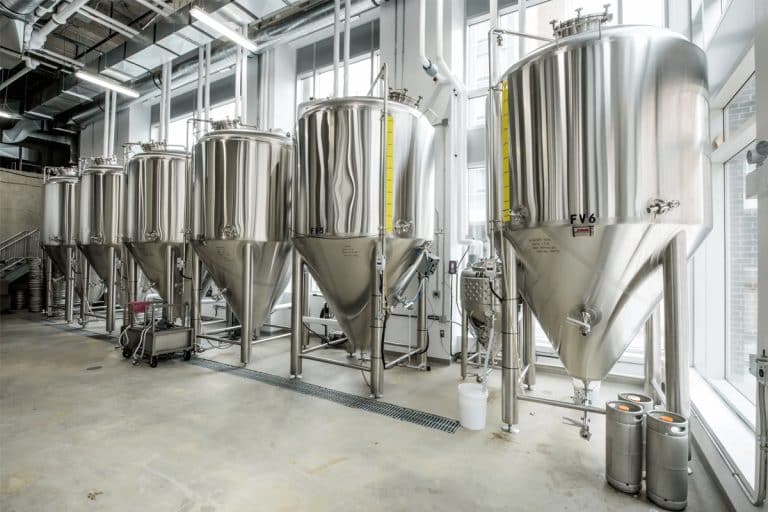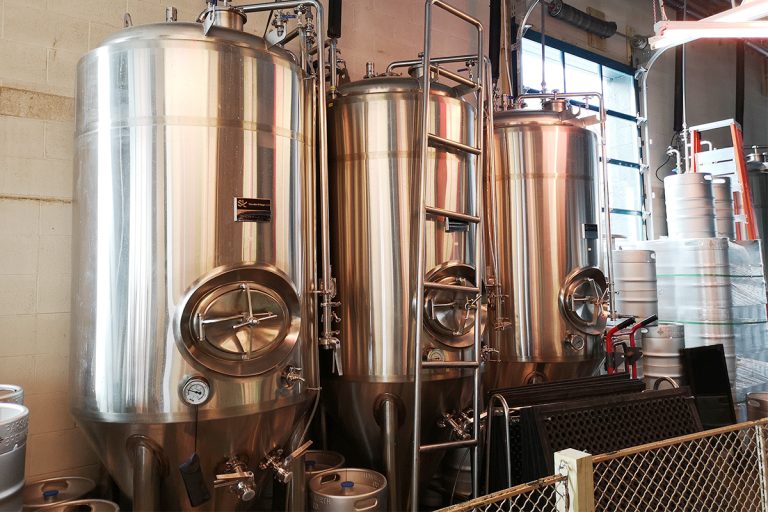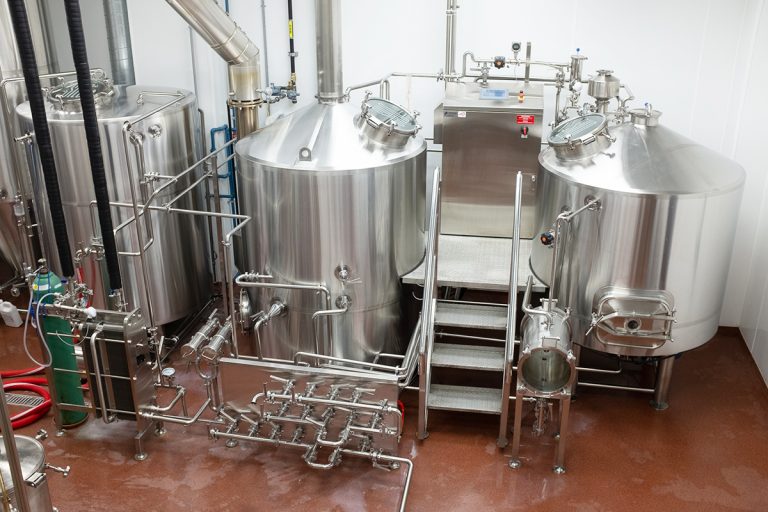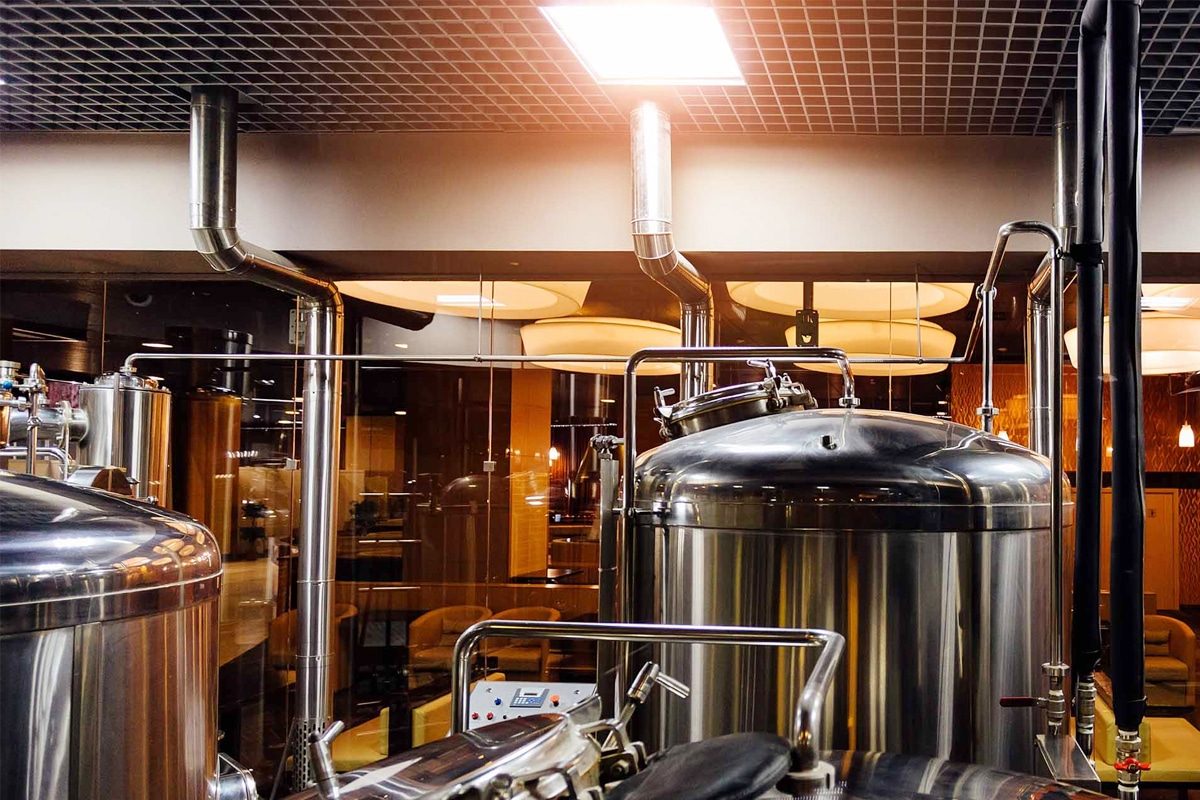
What Is A Microbrewery?
In the vast and ever-evolving world of brewing, a revolution has quietly begun, challenging the traditional norms of beer production and consumption. At the forefront of this movement are microbreweries, small havens of craftsmanship and innovation that are redefining the art of brewing. At its heart, a microbrewery is more than just a brewing facility, it is a testament to the craft brewing renaissance and a rebellion against the homogeneity of mass-produced beverages. Unlike industrial breweries, microbreweries believe in quality over quantity, and each batch of beer is a carefully crafted masterpiece that reflects the passion and dedication of the brewer.
This article aims to uncover all layers of the microbrewery experience, from its historical roots to the complex brewing process, its impact on local communities, and wider implications for the global beer industry. In each section, we’ll uncover the artistry behind brewing, the symbiotic relationship between microbreweries and their locations, and the dynamic role they play in shaping beer culture as we know it today.
What Is A Microbrewery
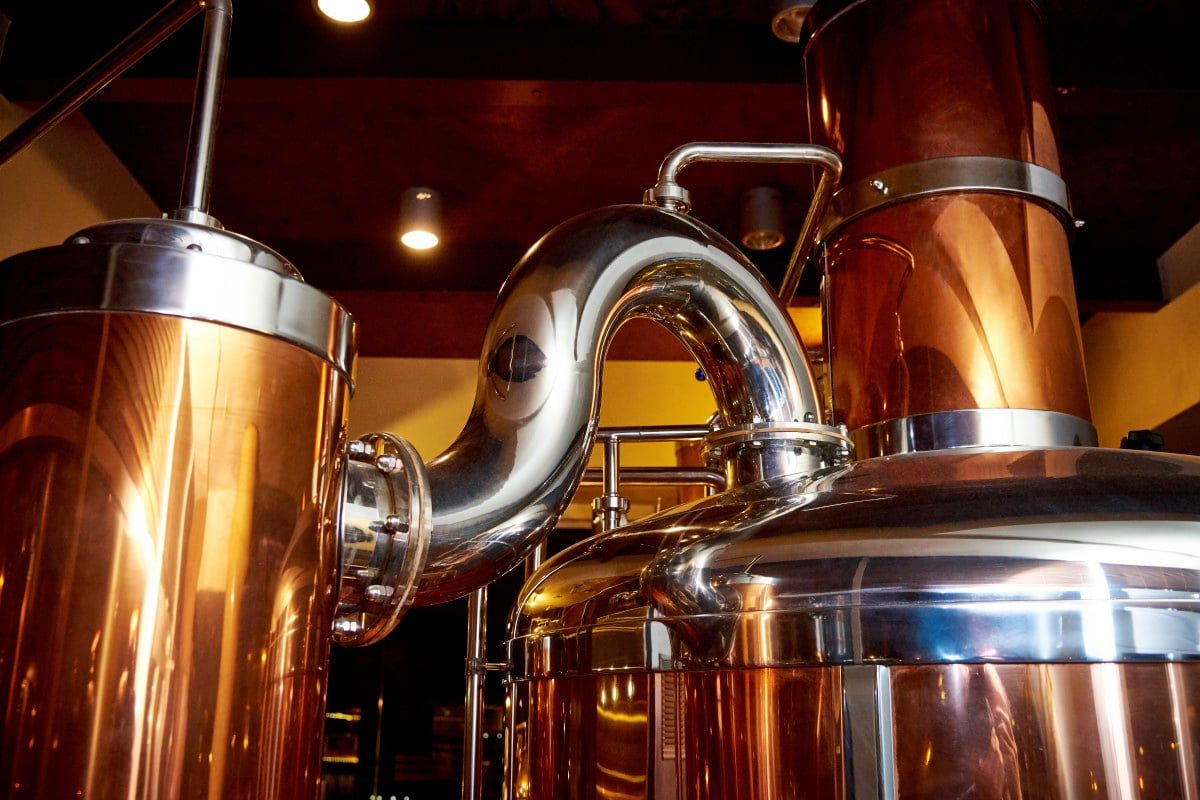
The History of Microbreweries
Origins And Early Beginnings
The roots of microbreweries stretch back into the annals of human history and are closely tied to the origins of brewing itself. Ancient civilizations from Mesopotamia to Egypt and beyond laid the foundation for the art of fermenting grains into delicious sacrificial wines. These early brewers often brewed in small batches in home or community settings, using basic techniques and local ingredients to produce a variety of beers.
Craft Beer Revolution
The 1960s and 1970s saw a major shift in the trajectory of microbreweries. Fueled by a desire for unique flavors and a rejection of the one-size-fits-all approach to industrial brewing, some passionate brewers are trying to revive the art of brewing on a smaller, more intimate scale.
The Emergence of Microbreweries
By the 1980s and 1990s, the concept of microbreweries took more shape. Often founded by passionate individuals or small teams, these breweries focus on recycling traditional brewing methods, experimenting with ingredients, and embracing creativity. This shift marks the renaissance of localized brewing and lays the foundation for the renaissance of global beer culture.
Impact on Beer Culture
The rise of microbreweries not only offers alternatives to mass-produced beers but also heralds a shift in consumer preferences. Beer drinkers are looking for more than just a drink, they crave unique flavor, authenticity, and a connection to the brewing process. Microbreweries fulfill these aspirations, reigniting appreciation for beer as a craft, not just a commodity.
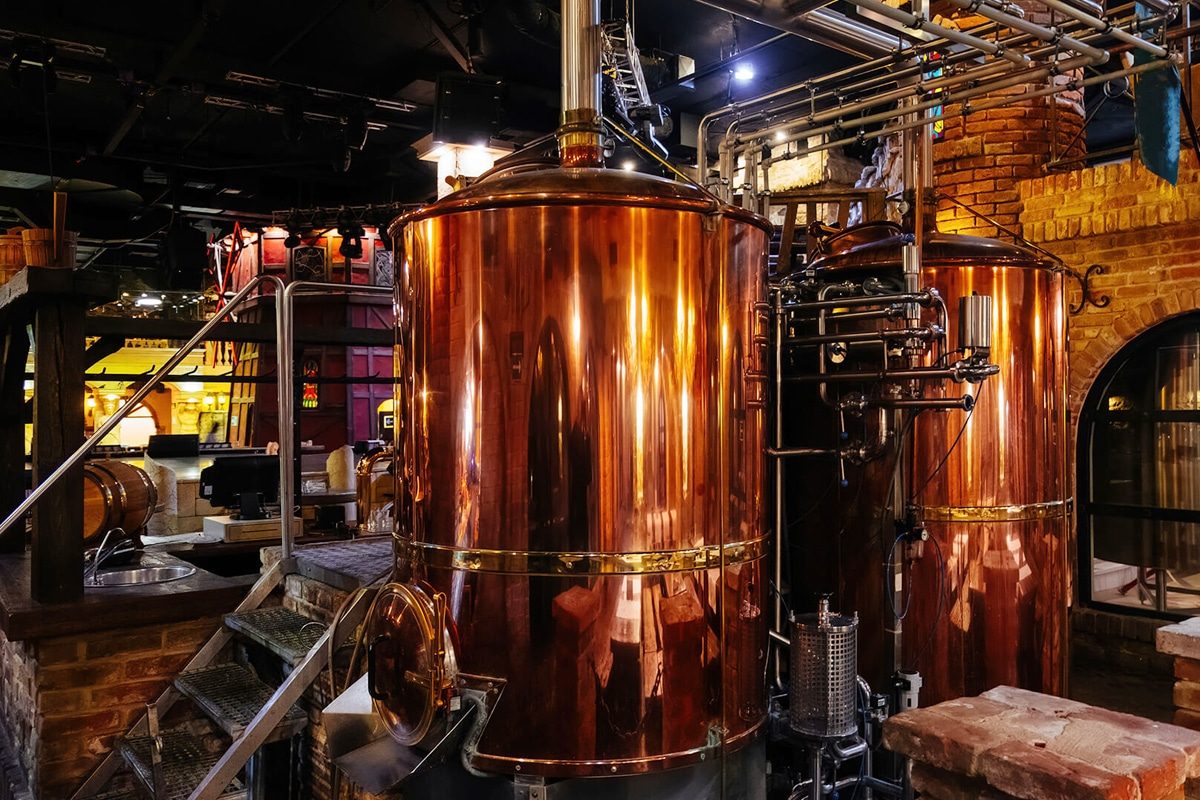
Anatomy of A Microbrewery
The Brewing Process Revealed
Ingredients: Malt, Hops, Yeast, Water
At the heart of every microbrewery are carefully selected ingredients. Malt serves as the base and provides the sugars needed for fermentation. Hops provide bitterness, aroma, and flavor and are used to balance the sweetness of the malt. Yeast converts sugar into alcohol and carbon dioxide during fermentation and gives beer its unique characteristics. And water, while often overlooked, is crucial, acting as the canvas on which flavor is painted.
Brewing Technology: From Saccharification to Fermentation
The brewing process unfolds in precise stages. Crushed malt is first mixed with hot water to activate enzymes that convert starch into fermentable sugars. This sugary liquid, called wort, is boiled and hops are added to impart bitterness and aroma. The magical transformation of fermentation occurs when yeast is introduced to cooled wort, converting sugar into alcohol and creating beer. The details of these techniques are where the art of microbrewing shines, with winemakers often experimenting with variations to create unique configurations.
Equipment And Technology
Microbreweries use a range of specialized equipment suited to their process. From mash tuns and brew kettles to fermentation vessels and conditioning tanks, every piece of equipment contributes to the art of brewing. Modern microbreweries may also employ technology for precise temperature control, efficient brewing cycles, and quality assurance. Despite advances in technology, a hands-on approach remains indispensable, with many small brewers relying on their expertise and sensory perception to guide the brewing process.
Beer Styles And Varieties in Microbreweries
Microbreweries have a diverse portfolio of beer styles that go beyond the limitations of mainstream offerings.
Learn About Different Types of Beer
Microbreweries have a diverse portfolio of beer styles that go beyond the limitations of mainstream offerings. From hop-forward IPAs to full-bodied stouts, from sour beers to experimental blends, the selection is vast. Each style has its unique characteristics in terms of flavor, aroma, color, and mouthfeel. Understanding the nuances of various styles allows small winemakers to cater to a variety of tastes and preferences.
Innovation And Experimentation
One of the hallmarks of microbreweries is their love of innovation. Brewers often push the boundaries to create avant-garde beers by introducing unconventional ingredients such as fruits, spices, herbs, and even barrel aging. This spirit of creativity has spawned limited edition and seasonal beers that continue to captivate the taste buds of enthusiasts seeking the extraordinary.
The intricate processes and diverse products of microbreweries demonstrate the artistry, precision, and boundless creativity that define the essence of craftsmanship. From selecting ingredients to mastering brewing techniques, every step in the brewery helps create a symphony of flavors that tantalizes the senses.

The Art of Microbrewing
Focus on Quality Rather Than Quantity
Microbreweries are bastions of quality craftsmanship, with a focus on creating exceptional beers rather than mass-producing generic products. Compared to large breweries, microbreweries prioritize the integrity of their beer, focusing on taste, aroma, and the overall sensory experience. This unwavering commitment to quality has laid the foundation for a vibrant and diverse beer culture that celebrates uniqueness rather than ubiquity.
Small Batch Production And Its Advantages
At the heart of the microbrewery ethos is the practice of small-batch production. Unlike industrial breweries, microbreweries intentionally limit output, allowing for greater control over every stage of the brewing process. This deliberate restriction gives brewers the freedom to experiment with recipes, fine-tune flavors, and respond quickly to consumer preferences. Small batch production creates an environment where precision and attention to detail lead, resulting in beers that are not unique but consistently exceptional.
Microbrewery Sustainability
The art of microbrewing goes beyond flavor profiles and into the realm of sustainability. Many microbreweries promote environmentally friendly practices, recognizing the importance of minimizing their environmental footprint. From sourcing local ingredients to implementing energy-saving processes and reducing waste, microbreweries incorporate sustainability into their art. This commitment not only resonates with environmentally conscious consumers but reflects a broader awareness of breweries’ role in communities and the planet.
The Brewer’s Role: Brewing Unique Flavors
At the heart of every microbrewery is the brewmaster, a skilled craftsman who combines scientific knowledge with creativity to brew unique flavors. Their expertise goes beyond technical proficiency to include a deep understanding of ingredients, brewing processes, and the art of flavor harmonization. The brewer’s taste and intuition guide the creation of innovative and memorable beers.
In the art of microbrewing, every element, from the careful selection of ingredients to the personal involvement of the brewmaster, helps create a beer that transcends the ordinary. It’s a celebration of craftsmanship, and a dedication to excellence, and invites beer lovers to taste the art in every beer.
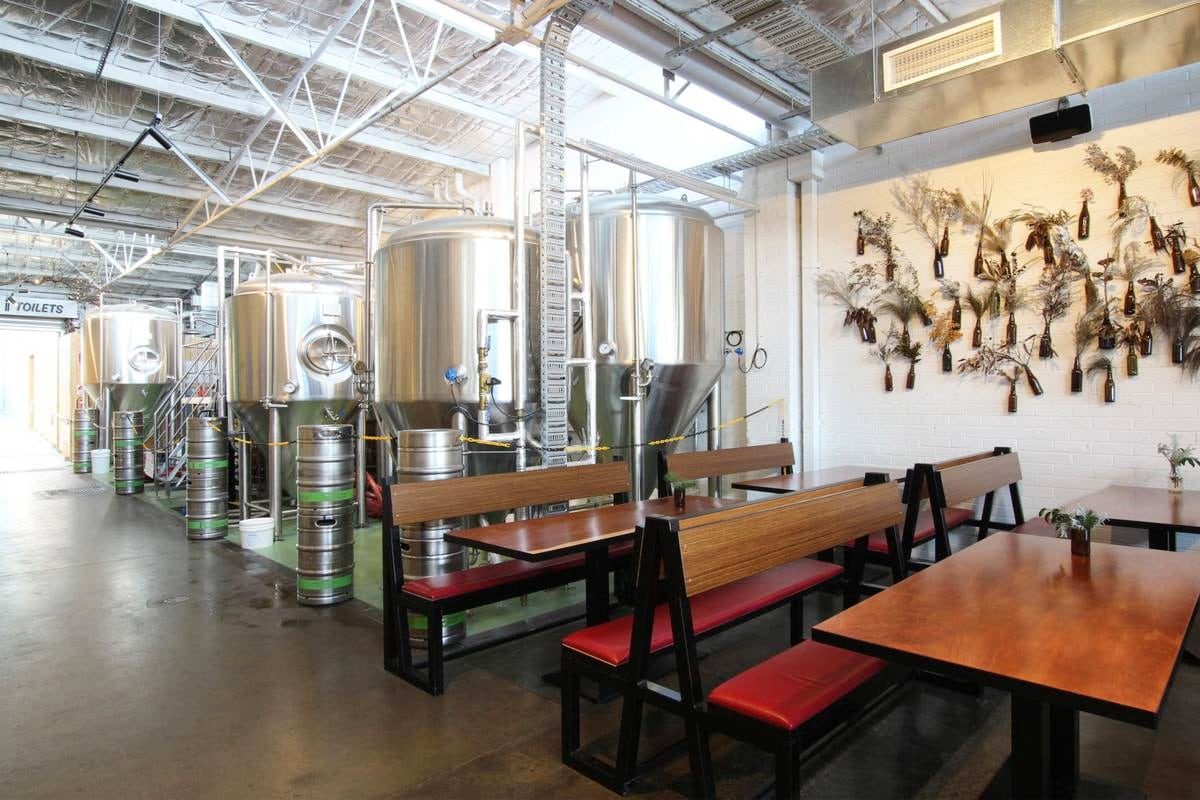
Microbreweries And Local Communities
Community Engagement And Support
Microbreweries are not just beer producers, they are an integral part of the communities they serve. The microbrewery regularly participates in local events, sponsors community events, and partners with nearby businesses to create a vibrant social hub. This not only fosters camaraderie but also solidifies the brewery’s role as a community partner.
Local Raw Material Sourcing
One of the hallmarks of microbreweries is their commitment to sourcing their ingredients locally. This is not just a preference, but a conscious choice to support area farmers and businesses. Local grains, hops, and even specialty ingredients give the beer a unique regional character, creating a unique connection between the brewery and the local area. This approach not only promotes sustainability but also strengthens connections within local supply chains.
Impact on Local Economy And Culture
The economic impact of microbreweries on the local economy is huge. In addition to creating jobs directly within the breweries, these sites also attract visitors and generate revenue for adjacent businesses such as restaurants, hotels, and shops. In addition, microbreweries often enhance the cultural vitality of their surroundings by hosting events, live music, and art exhibitions. This infusion of culture enhances the overall experience for locals and visitors alike.
Taprooms: Creating Interactive Spaces
At the heart of community integration is the microbrewery taproom. It’s not just a space where beer is served, it’s a public space where people gather, share stories, and connect. Direct interaction between winemakers and customers fosters a unique sense of belonging. Whether it’s brewery tours, wine tastings, or casual chats over beers, taproom makes a significant contribution to the social fabric of the community.
The symbiotic relationship between microbreweries and their local communities exemplifies the integral role these businesses play in fostering social connections, supporting local economies, and highlighting the character of their regions.
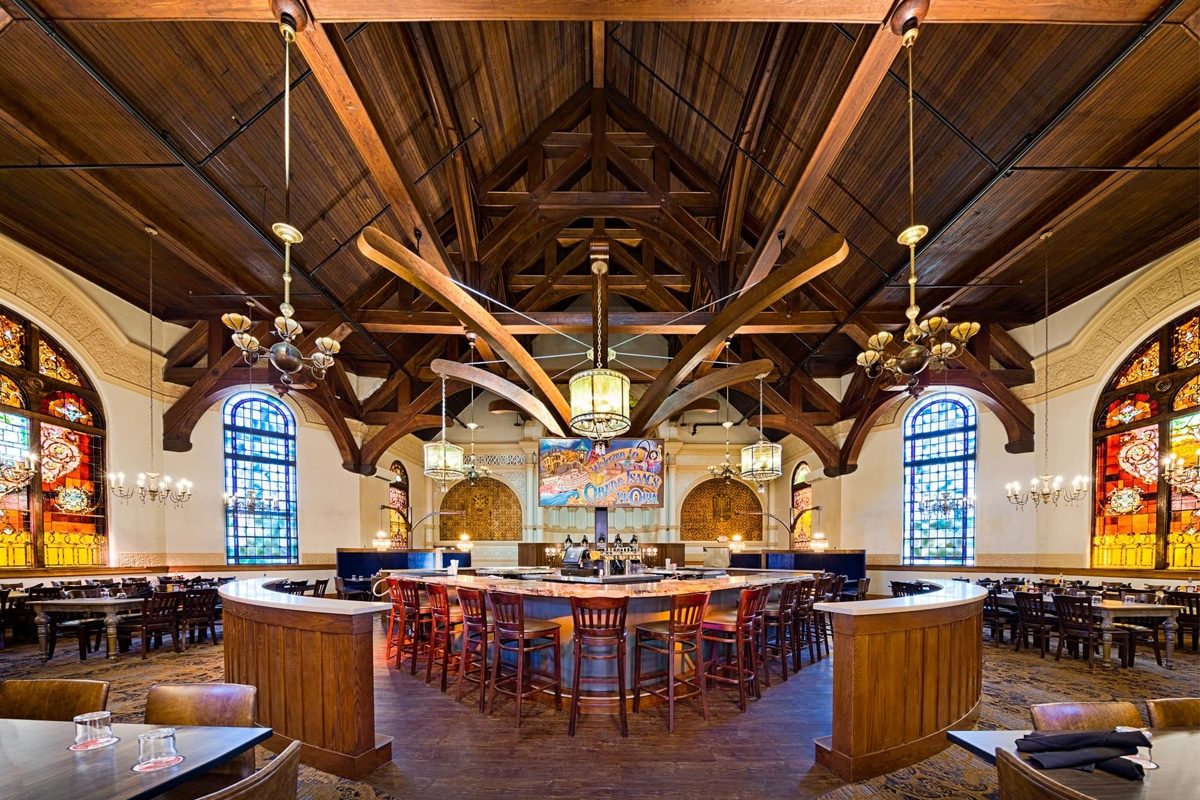
The Impact of Microbreweries
Disruption in The Beer Industry
Microbreweries disrupt the traditional beer industry paradigm dominated by large breweries. Their emphasis on quality, innovation, and diverse flavors challenges the homogeneity of mass-produced beers. This disruption not only expands consumer choice, it also forces large breweries to acknowledge and adapt to the market’s changing preferences.
Consumer Preferences And Trends
The rise of microbreweries has greatly impacted consumer preferences and beer market trends. Beer drinkers are increasingly seeking unique and delicious beers and gravitating towards the authenticity and craftsmanship offered by microbreweries. This shift has impacted broader beer trends, encouraging departures from standardized, mainstream options and fostering an appreciation for the artistry and individuality that microbreweries bring to the table.
Microbreweries’ Global Reach And Expansion
What began as a grassroots movement has evolved into a global phenomenon. Microbreweries have transcended local boundaries and gained worldwide recognition and appreciation. Their beers are celebrated not only within their community but also at international beer festivals. Their ability to transcend borders not only elevates craft beer but also fosters cultural exchange, as brewers draw inspiration from different traditions, ingredients, and brewing techniques from around the world.
The influence of microbreweries goes beyond market dynamics. They sparked a cultural shift that redefined the nature of beer appreciation and consumption around the world. As microbreweries continue to flourish, their impact on consumer habits and the wider beer industry will continue to shape the future of brewing.
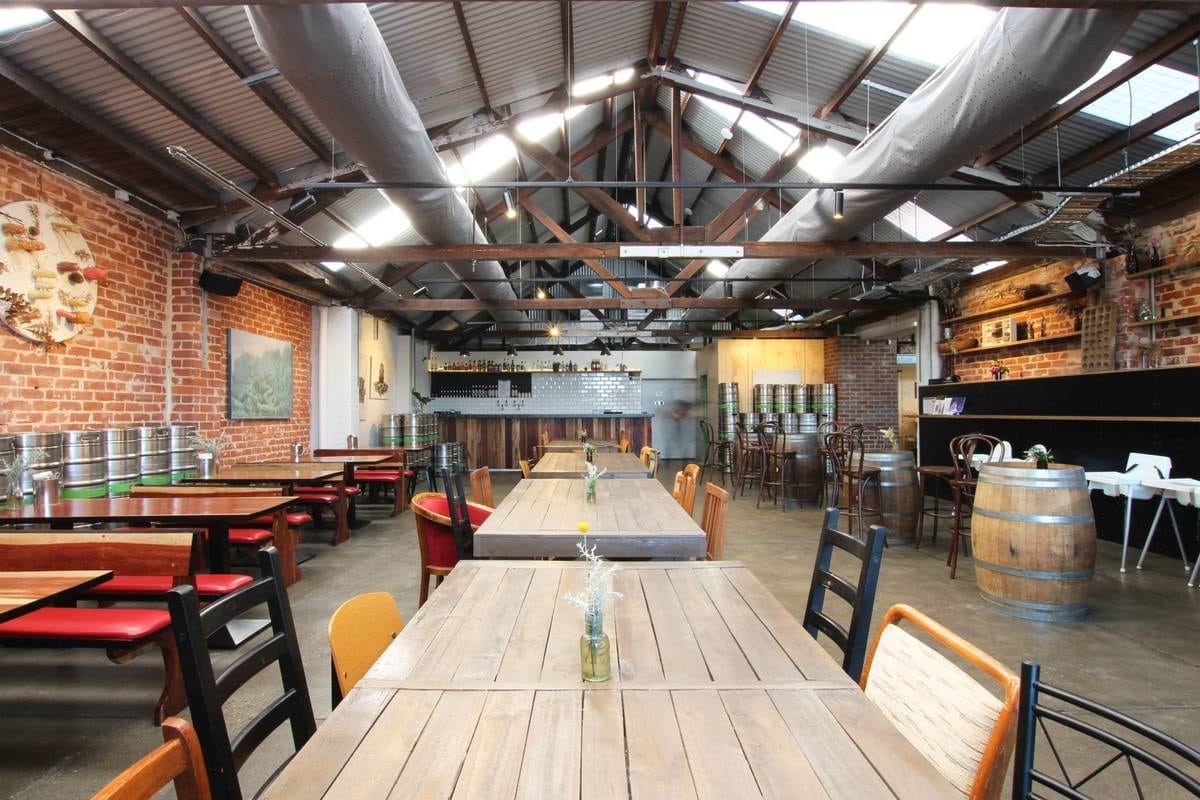
Microbrewing Challenges And Opportunities
Regulatory And Legal Barriers
Navigating complex licensing requirements and regulatory frameworks creates challenges for many microbreweries. Complying with local, state, and national regulations can be time-consuming and may require legal expertise to ensure compliance with varying standards.
Additionally, microbreweries often face tax challenges, including excise taxes on alcoholic beverages. These financial burdens can impact profitability, especially for small businesses with limited resources.
Market Saturation
The craft beer market is highly competitive, with an increasing number of microbreweries vying for consumer attention. Standing out from the crowd of competitors requires striking a delicate balance between remaining unique and meeting changing consumer trends.
The changing landscape of beer preferences requires constant innovation. Microbreweries must keep up with industry trends, experiment with new ingredients, and adapt their products to meet consumers’ changing tastes.
Prospects And Growth Opportunities
Microbreweries can overcome challenges by exploring partnerships with local businesses such as restaurants, food trucks, or even other breweries. These partnerships not only enhance the overall customer experience but also expand the brewery’s reach.
To combat market saturation, microbreweries can explore product line diversification. This could include introducing new beer styles, experimenting with different brewing techniques, or even branching out into non-alcoholic beverages to cater to a wider audience. Additionally, leveraging technology such as online sales and marketing platforms can open up new ways for microbreweries to reach consumers. Employing e-commerce, social media, and innovative brewing techniques can increase visibility and accessibility.
Microbrewing, while challenging, also offers countless opportunities for innovation, growth, and community involvement. By addressing regulatory hurdles, paying attention to market dynamics, and taking strategic initiatives, microbreweries can rise to the challenge and become thriving contributors to the dynamic world of craft beer.

The Cultural Significance of Microbreweries
Microbrewery As The Cultural Hub
Microbreweries go beyond their role as beer producers, they serve as vibrant cultural hubs within their communities. These venues often host events such as live music performances, art exhibitions, and community gatherings. By providing a space for cultural expression, microbreweries become integral contributors to the local cultural fabric.
Beer Tours And Brewery Visits
The rise of microbreweries has contributed to the phenomenon of beer tourism. Enthusiasts and curious tourists visit breweries not only to taste the unique beers but also to experience the brewing process first-hand. Brewery tours and tastings have become popular attractions, attracting visitors to explore local beer culture and immerse themselves in the brewery atmosphere.
Shaping Global Beer-Drinking Culture
Microbreweries have played a key role in shaping beer-drinking culture around the world. By prioritizing quality, variety, and authenticity, they influence consumer perceptions and preferences. This shift has led to a broader appreciation of different beer styles, flavors, and brewing techniques, transcending borders and influencing beer culture around the world.
The cultural significance of microbreweries extends beyond the brewing process. It fosters connections, promotes local art and music, and impacts wider beer-drinking culture. Their impact extends beyond brewing, catalyzing community engagement, cultural exchange, and celebration of the diversity of flavors and experiences.
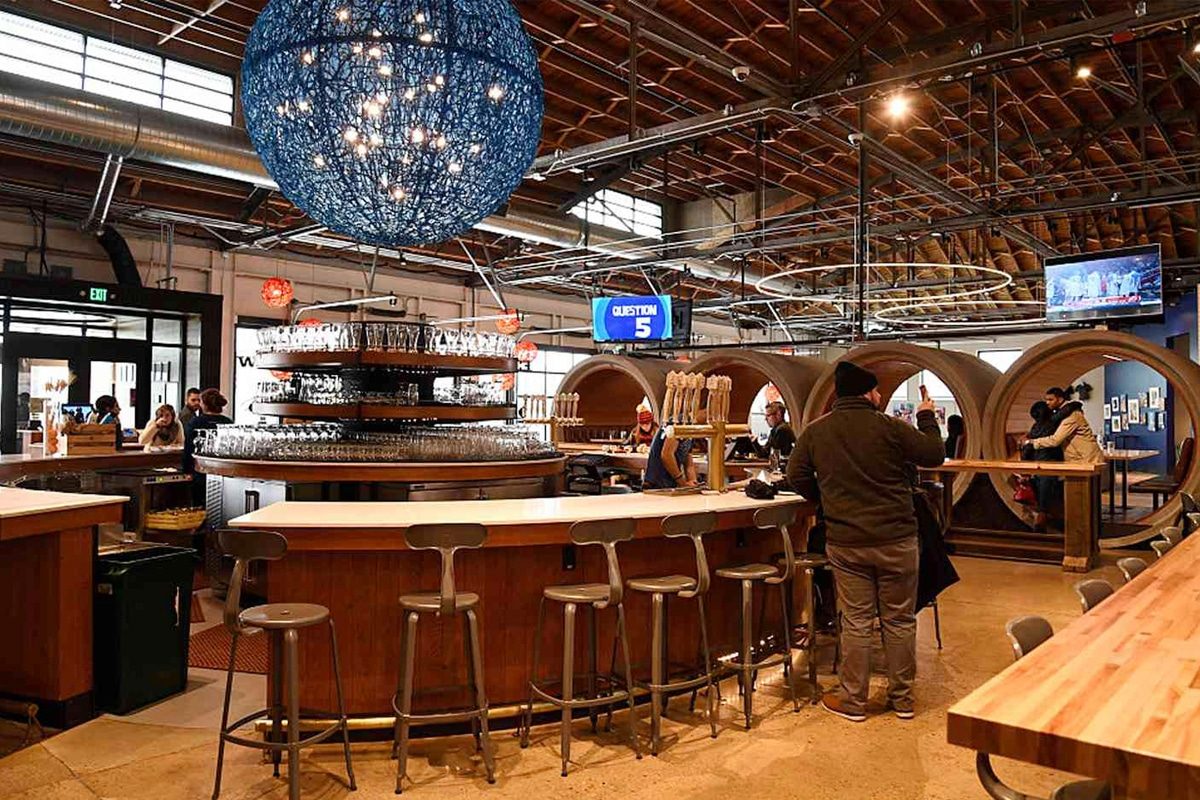
Summarize
The microbrewery is more than just a place to brew beer, it’s a cultural force, a community pillar, and a testament to the enduring appeal of handcrafted, delicious beer. From historical roots that challenge industry norms to the intricate art of brewing, microbreweries embody a dedication to quality, innovation, and community involvement. These venues are disrupting the beer landscape, offering diverse flavors and redefining consumer expectations. As microbreweries continue to shape global beer culture, their influence extends beyond the liquid in the glass, leaving an indelible mark on the way we appreciate, taste, and celebrate the craft of brewing. The future of microbrews promises continued growth, innovation, and an unwavering commitment to the art and camaraderie that defines this dynamic industry.
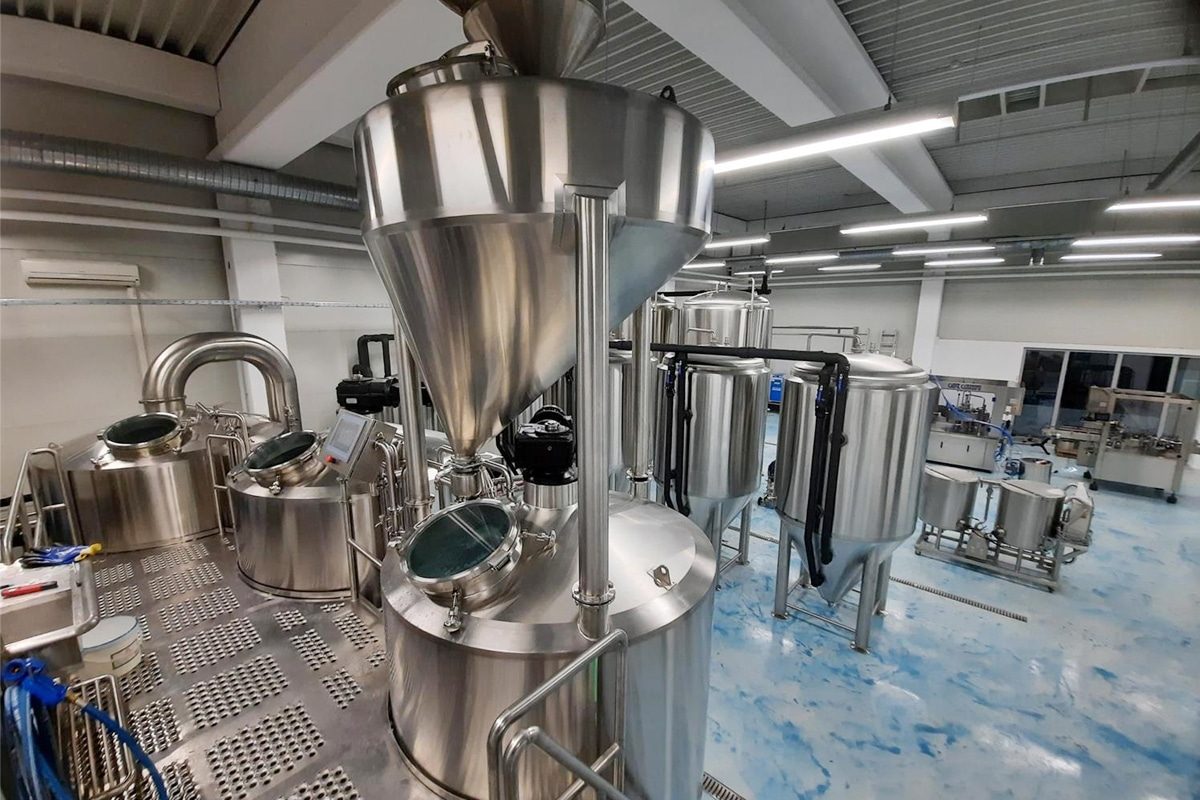
Get A Microbrewery Turnkey Solution
At ZYB Craft, we focus on providing end-to-end solutions tailored to the unique needs of microbreweries. Whether you’re starting from scratch or looking to enhance your existing setup, our team of experts is dedicated to guiding you through every step of the process. Ready to elevate your small brewery experience? Contact ZYB Craft for a turnkey solution to turn your brewing aspirations into reality. Whether you’re an experienced brewer or new to the craft beer world, our expertise can ensure your microbrewery journey is as smooth and delicious as the beer you brew.

